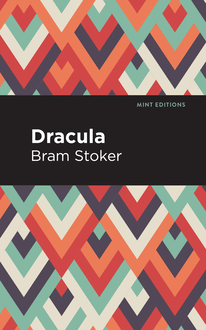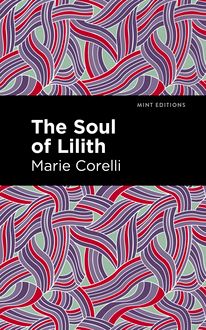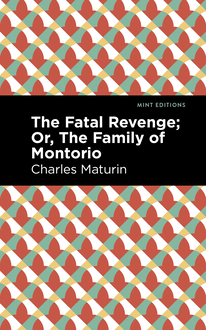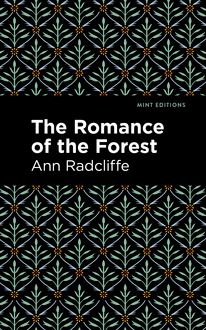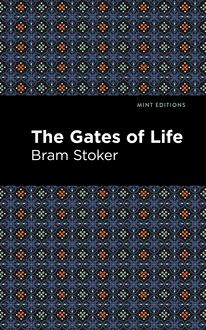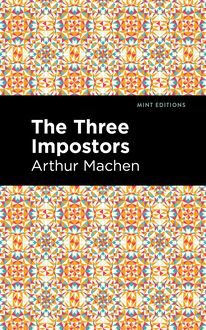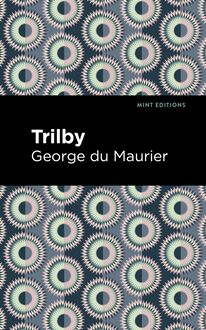-
 Univers
Univers
-
 Ebooks
Ebooks
-
 Livres audio
Livres audio
-
 Presse
Presse
-
 Podcasts
Podcasts
-
 BD
BD
-
 Documents
Documents
-
- Cours
- Révisions
- Ressources pédagogiques
- Sciences de l’éducation
- Manuels scolaires
- Langues
- Travaux de classe
- Annales de BEP
- Etudes supérieures
- Maternelle et primaire
- Fiches de lecture
- Orientation scolaire
- Méthodologie
- Corrigés de devoir
- Annales d’examens et concours
- Annales du bac
- Annales du brevet
- Rapports de stage
La lecture à portée de main
Vous pourrez modifier la taille du texte de cet ouvrage
Découvre YouScribe en t'inscrivant gratuitement
Je m'inscrisDécouvre YouScribe en t'inscrivant gratuitement
Je m'inscrisEn savoir plus
Vous pourrez modifier la taille du texte de cet ouvrage
En savoir plus

Description
Dracula’s Guest (1914) is a collection of short stories by Irish author Bram Stoker. Edited and published by Florence, the author’s wife, following Stoker’s death only two years prior, Dracula’s Guest helped to establish the Irish master of Gothic horror’s reputation as a leading writer of the early-twentieth century.
In “Dracula’s Guest,” an unnamed Englishman journeys by carriage into the countryside from his hotel in Munich to take in some of the local scenery. On the journey, his driver warns him of the dangers of Walpurgis Night only hours away, a time in which demons and ghosts are rumored to roam the land. Stopping near an abandoned village, the Englishman ignores his driver’s unease and, sending the carriage back to Munich, makes his way into the hills alone. Lost in the dark, a sudden appearance of moonlight reveals his eerie surroundings—a dark and dreary cemetery. As a storm abruptly begins, he takes shelter in the doorway of a tomb, accidentally disturbing the entrance to reveal, at its center, the body of a beautiful, sleeping woman. In “The Judge’s House,” a scholar on holiday in a seaside town spends the night in a mysterious home, despite the warnings of locals who beg him not to stay at such a place. Dracula’s Guest compiles nine works of short fiction by Bram Stoker, the secretive and vastly underrated creator of Dracula, one of history’s greatest villains.
With a beautifully designed cover and professionally typeset manuscript, this edition of Bram Stoker’s Dracula’s Guest is a classic of Irish literature reimagined for modern readers.
Sujets
Informations
| Publié par | Mint Editions |
| Date de parution | 09 février 2021 |
| Nombre de lectures | 0 |
| EAN13 | 9781513276472 |
| Langue | English |
| Poids de l'ouvrage | 2 Mo |
Informations légales : prix de location à la page 0,0400€. Cette information est donnée uniquement à titre indicatif conformément à la législation en vigueur.
Extrait
Dracula’s Guest
Bram Stoker
Dracula’s Guest was first published in 1897.
This edition published by Mint Editions 2021.
ISBN 9781513271477 | E-ISBN 9781513276472
Published by Mint Editions®
minteditionbooks .com
Publishing Director: Jennifer Newens
Design & Production: Rachel Lopez Metzger
Project Manager: Micaela Clark
Typesetting: Westchester Publishing Services
C ONTENTS P REFACE D RACULA ’ S G UEST T HE J UDGE ’ S H OUSE T HE S QUAW T HE S ECRET OF THE G ROWING G OLD T HE G IPSY P ROPHECY T HE C OMING OF A BEL B EHENNA T HE B URIAL OF THE R ATS A D REAM OF R ED H ANDS C ROOKEN S ANDS
P REFACE
A few months before the lamented death of my husband—I might say even as the shadow of death was over him—he planned three series of short stories for publication, and the present volume is one of them. To his original list of stories in this book, I have added an hitherto unpublished episode from Dracula . It was originally excised owing to the length of the book, and may prove of interest to the many readers of what is considered my husband’s most remarkable work. The other stories have already been published in English and American periodicals. Had my husband lived longer, he might have seen fit to revise this work, which is mainly from the earlier years of his strenuous life. But, as fate has entrusted to me the issuing of it, I consider it fitting and proper to let it go forth practically as it was left by him.
F LORENCE B RAM S TOKER
D RACULA ’ S G UEST
W hen we started for our drive the sun was shining brightly on Munich, and the air was full of the joyousness of early summer. Just as we were about to depart, Herr Delbr ü ck (the ma î tre d’h ô tel of the Quatre Saisons, where I was staying) came down, bareheaded, to the carriage and, after wishing me a pleasant drive, said to the coachman, still holding his hand on the handle of the carriage door:
‘Remember you are back by nightfall. The sky looks bright but there is a shiver in the north wind that says there may be a sudden storm. But I am sure you will not be late.’ Here he smiled, and added, ‘for you know what night it is.’
Johann answered with an emphatic, ‘Ja, mein Herr,’ and, touching his hat, drove off quickly. When we had cleared the town, I said, after signalling to him to stop:
‘Tell me, Johann, what is tonight?’
He crossed himself, as he answered laconically: ‘Walpurgis nacht.’ Then he took out his watch, a great, old-fashioned German silver thing as big as a turnip, and looked at it, with his eyebrows gathered together and a little impatient shrug of his shoulders. I realised that this was his way of respectfully protesting against the unnecessary delay, and sank back in the carriage, merely motioning him to proceed. He started off rapidly, as if to make up for lost time. Every now and then the horses seemed to throw up their heads and sniffed the air suspiciously. On such occasions I often looked round in alarm. The road was pretty bleak, for we were traversing a sort of high, wind-swept plateau. As we drove, I saw a road that looked but little used, and which seemed to dip through a little, winding valley. It looked so inviting that, even at the risk of offending him, I called Johann to stop—and when he had pulled up, I told him I would like to drive down that road. He made all sorts of excuses, and frequently crossed himself as he spoke. This somewhat piqued my curiosity, so I asked him various questions. He answered fencingly, and repeatedly looked at his watch in protest. Finally I said:
‘Well, Johann, I want to go down this road. I shall not ask you to come unless you like; but tell me why you do not like to go, that is all I ask.’ For answer he seemed to throw himself off the box, so quickly did he reach the ground. Then he stretched out his hands appealingly to me, and implored me not to go. There was just enough of English mixed with the German for me to understand the drift of his talk. He seemed always just about to tell me something—the very idea of which evidently frightened him; but each time he pulled himself up, saying, as he crossed himself: ‘Walpurgis-Nacht!’
I tried to argue with him, but it was difficult to argue with a man when I did not know his language. The advantage certainly rested with him, for although he began to speak in English, of a very crude and broken kind, he always got excited and broke into his native tongue—and every time he did so, he looked at his watch. Then the horses became restless and sniffed the air. At this he grew very pale, and, looking around in a frightened way, he suddenly jumped forward, took them by the bridles and led them on some twenty feet. I followed, and asked why he had done this. For answer he crossed himself, pointed to the spot we had left and drew his carriage in the direction of the other road, indicating a cross, and said, first in German, then in English: ‘Buried him—him what killed themselves.’
I remembered the old custom of burying suicides at cross-roads: ‘Ah! I see, a suicide. How interesting!’ But for the life of me I could not make out why the horses were frightened.
Whilst we were talking, we heard a sort of sound between a yelp and a bark. It was far away; but the horses got very restless, and it took Johann all his time to quiet them. He was pale, and said, ‘It sounds like a wolf—but yet there are no wolves here now.’
‘No?’ I said, questioning him; ‘isn’t it long since the wolves were so near the city?’
‘Long, long,’ he answered, ‘in the spring and summer; but with the snow the wolves have been here not so long.’
Whilst he was petting the horses and trying to quiet them, dark clouds drifted rapidly across the sky. The sunshine passed away, and a breath of cold wind seemed to drift past us. It was only a breath, however, and more in the nature of a warning than a fact, for the sun came out brightly again. Johann looked under his lifted hand at the horizon and said:
‘The storm of snow, he comes before long time.’ Then he looked at his watch again, and, straightway holding his reins firmly—for the horses were still pawing the ground restlessly and shaking their heads—he climbed to his box as though the time had come for proceeding on our journey.
I felt a little obstinate and did not at once get into the carriage.
‘Tell me,’ I said, ‘about this place where the road leads,’ and I pointed down.
Again he crossed himself and mumbled a prayer, before he answered, ‘It is unholy.’
‘What is unholy?’ I enquired.
‘The village.’
‘Then there is a village?’
‘No, no. No one lives there hundreds of years.’ My curiosity was piqued, ‘But you said there was a village.’
‘There was.’
‘Where is it now?’
Whereupon he burst out into a long story in German and English, so mixed up that I could not quite understand exactly what he said, but roughly I gathered that long ago, hundreds of years, men had died there and been buried in their graves; and sounds were heard under the clay, and when the graves were opened, men and women were found rosy with life, and their mouths red with blood. And so, in haste to save their lives (aye, and their souls!—and here he crossed himself) those who were left fled away to other places, where the living lived, and the dead were dead and not—not something. He was evidently afraid to speak the last words. As he proceeded with his narration, he grew more and more excited. It seemed as if his imagination had got hold of him, and he ended in a perfect paroxysm of fear—white-faced, perspiring, trembling and looking round him, as if expecting that some dreadful presence would manifest itself there in the bright sunshine on the open plain. Finally, in an agony of desperation, he cried:
‘Walpurgis nacht!’ and pointed to the carriage for me to get in. All my English blood rose at this, and, standing back, I said:
‘You are afraid, Johann—you are afraid. Go home; I shall return alone; the walk will do me good.’ The carriage door was open. I took from the seat my oak walking-stick—which I always carry on my holiday excursions—and closed the door, pointing back to Munich, and said, ‘Go home, Johann—Walpurgis-nacht doesn’t concern Englishmen.’
The horses were now more restive than ever, and Johann was trying to hold them in, while excitedly imploring me not to do anything so foolish. I pitied the poor fellow, he was deeply in earnest; but all the same I could not help laughing. His English was quite gone now. In his anxiety he had forgotten that his only means of making me understand was to talk my language, so he jabbered away in his native German. It began to be a little tedious. After giving the direction, ‘Home!’ I turned to go down the cross-road into the valley.
With a despairing gesture, Johann turned his horses towards Munich. I leaned on my stick and looked after him. He went slowly along the road for a while: then there came over the crest of the hill a man tall and thin. I could see so much in the distance. When he drew near the horses, they began to jump and kick about, then to scream with terror. Johann could not hold them in; they bolted down the road, running away madly. I watched them out of sight, then looked for the stranger, but I found that he, too, was gone.
With a light heart I turned down the side road through the deepening valley to which Johann had objected. There was not the slightest reason, that I could see, for his objection; and I daresay I tramped for a couple of hours without thinking of time or distance, and certainly without seeing a person or a house. So far as the place was concerned, it was desolation itself. But I did not notice this particularly till, on turning a bend in the road, I came upon a scattered fringe of wood; then I recognised that I had been impressed unconsciously by the desolation of the region through which I had passed.
I sat down to rest myself, and began to look around. It struck me that it was considerably colder than it had been at the commencement of m
-
 Univers
Univers
-
 Ebooks
Ebooks
-
 Livres audio
Livres audio
-
 Presse
Presse
-
 Podcasts
Podcasts
-
 BD
BD
-
 Documents
Documents
-
Jeunesse
-
Littérature
-
Ressources professionnelles
-
Santé et bien-être
-
Savoirs
-
Education
-
Loisirs et hobbies
-
Art, musique et cinéma
-
Actualité et débat de société
-
Jeunesse
-
Littérature
-
Ressources professionnelles
-
Santé et bien-être
-
Savoirs
-
Education
-
Loisirs et hobbies
-
Art, musique et cinéma
-
Actualité et débat de société
-
Actualités
-
Lifestyle
-
Presse jeunesse
-
Presse professionnelle
-
Pratique
-
Presse sportive
-
Presse internationale
-
Culture & Médias
-
Action et Aventures
-
Science-fiction et Fantasy
-
Société
-
Jeunesse
-
Littérature
-
Ressources professionnelles
-
Santé et bien-être
-
Savoirs
-
Education
-
Loisirs et hobbies
-
Art, musique et cinéma
-
Actualité et débat de société
- Cours
- Révisions
- Ressources pédagogiques
- Sciences de l’éducation
- Manuels scolaires
- Langues
- Travaux de classe
- Annales de BEP
- Etudes supérieures
- Maternelle et primaire
- Fiches de lecture
- Orientation scolaire
- Méthodologie
- Corrigés de devoir
- Annales d’examens et concours
- Annales du bac
- Annales du brevet
- Rapports de stage

